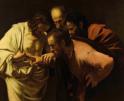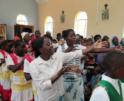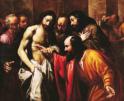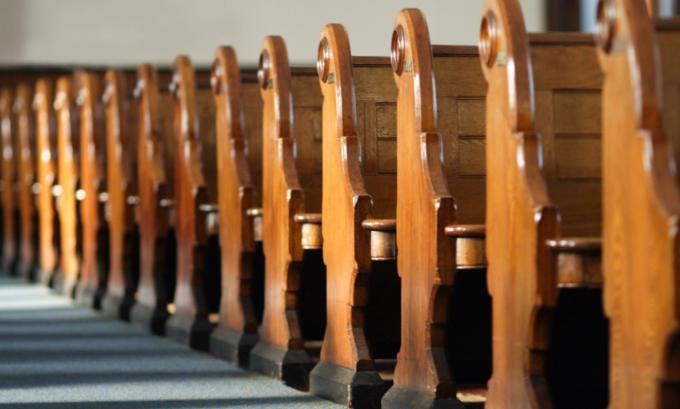
Faith
From childhood bruises to broken adolescent hearts, our mothers have looked us in the eye and said, 'Offer it up.' The children of atheists and the unchurched can only look into the void and say 'Why me?'
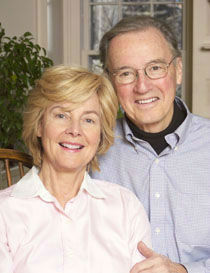
Ryan
You probably haven't read this in our major newspapers or seen it on TV, but religious people (like most readers of this column) are healthier, happier and have more stable and fulfilling family lives than their secularist neighbors. Scientific studies by medical researchers and sociologists have consistently found a strong link between church attendance and other religious activities and individual's personal happiness, good health and longevity.
Ignored for years by the scientific community, religion and peoples' involvement with their faith do, in fact, have quite measurable outcomes. Compared with non-religious people and atheists, churchgoers:
-- Report high levels of satisfaction with their marriages and subsequently divorce less frequently;
-- Are less prone to depression, suicide and physical disabilities, suffering less incidents of cancer, heart disease, high blood pressure, hypertension and other maladies;
-- Have better mental health and higher levels of self-esteem:
-- Have fewer incidents of overindulgence in alcohol and drugs, promiscuity and crime;
-- Live longer and have greater degrees of happiness.
In addition, the regular practice of religion is associated with
-- Aiding people escape the grip of poverty and is particular useful to minority youth in that endeavor;
-- Helping individuals develop a positive moral code and sound moral judgement;
-- Resisting social ills, such as out-of-wedlock births.
-- Providing the strength to resist and overcome the damages of drugs, alcoholism and other social ills.
Secularists, that is those who put their faith in the state to solve human needs and human woes, often criticize religious people for being clannish, wrapped up in their churchy enclaves and are disconnected from the poor and others in need of help. But that is just false. Surveys regularly demonstrate that the most generous Americans are religious and the least generous are the least religious.
And why wouldn't that be the case. The Bible and our liturgies continually remind us of our obligations to the poor. The Old Testament prompts us, "Whoever is generous to the poor lends to the Lord, and he will repay him for his deed." (Proverbs 19:17) The New Testament is a testimony to Christ's overflowing concern for the weak and the poor. "The Spirit of the Lord is upon me, because he has anointed me to proclaim good news to the poor. He has sent me to proclaim liberty to the captives and recovering of sight to the blind, to set at liberty those who are oppressed." (Luke 4:18).
The root meaning of the word "religion" comes from a verb "to bind together." Religious people are, de facto, bound to their follow humans, especially to "the least among them." To the degree that we are unmindful of life's less fortunate, we betray our faith.
So, religion and its impact are under the microscope. Dr. Jeff Levin of Baylor University is one of the leading scientists exploring the individual and social effects on the religiously committed. Much of his pioneer research is available in his book, "God, Faith, and Health: Exploring the Spirituality-Healing Connection." According to Dr. Levin, "Everything in existence--inside and outside of our bodies, from the smallest molecule to the actions of a loving God--is fair game for research on how and why people stay well, become ill, and get better."
Only rarely do the snide references and the drumbeat of criticism toward religion yield. Once such exception came from the late William Raspberry, an African-American and longtime columnist for the Washington Post. "Almost every commentator on the current scene bemoans the increase of violence, lowered ethical standards and loss of civility that mark American society. Is the decline of religious influence part of what is happening to us? Is it not just possible that anti-religious bias masquerading as religious neutrality is costing more than we have been willing to acknowledge?" One very obvious and destructive anti-religious bias is the failure of the state to support the heroic mission of Catholic schools serving the urban minority communities.
Religious people, Catholics in particular, are able to weather difficult times, such as a death in the family or the loss of a job. We can explain suffering and pain to ourselves. As followers of the crucified Christ, suffering and pain have meaning for us. We may not be happy about it, but we understand it. From childhood bruises to broken adolescent hearts, our mothers have looked us in the eye and said, "Offer it up." The children of atheists and the unchurched can only look into the void and say "Why me?" Our faith has prepared us. We know that after the crucifixion, there is the resurrection. After Good Friday comes Happy Easter.
KEVIN AND MARILYN RYAN, EDITORS OF "WHY I'M STILL A CATHOLIC," WORSHIP AT ST. LAWRENCE CHURCH IN BROOKLINE.
- Kevin and Marilyn Ryan, editors of "Why I'm Still a Catholic," worship at St. Lawrence Church in Brookline, Mass.
Recent articles in the Faith & Family section
-
Wounds, not scarsJaymie Stuart Wolfe
-
A special collection in the liturgy libraryFather Robert M. O'Grady
-
Witness to a Transfiguration in KenyaMichele Miers
-
Understanding the ScripturesScott Hahn
-
'Cabrini' does extraordinary job of bringing saint to lifeBishop Nicholas DiMarzio

